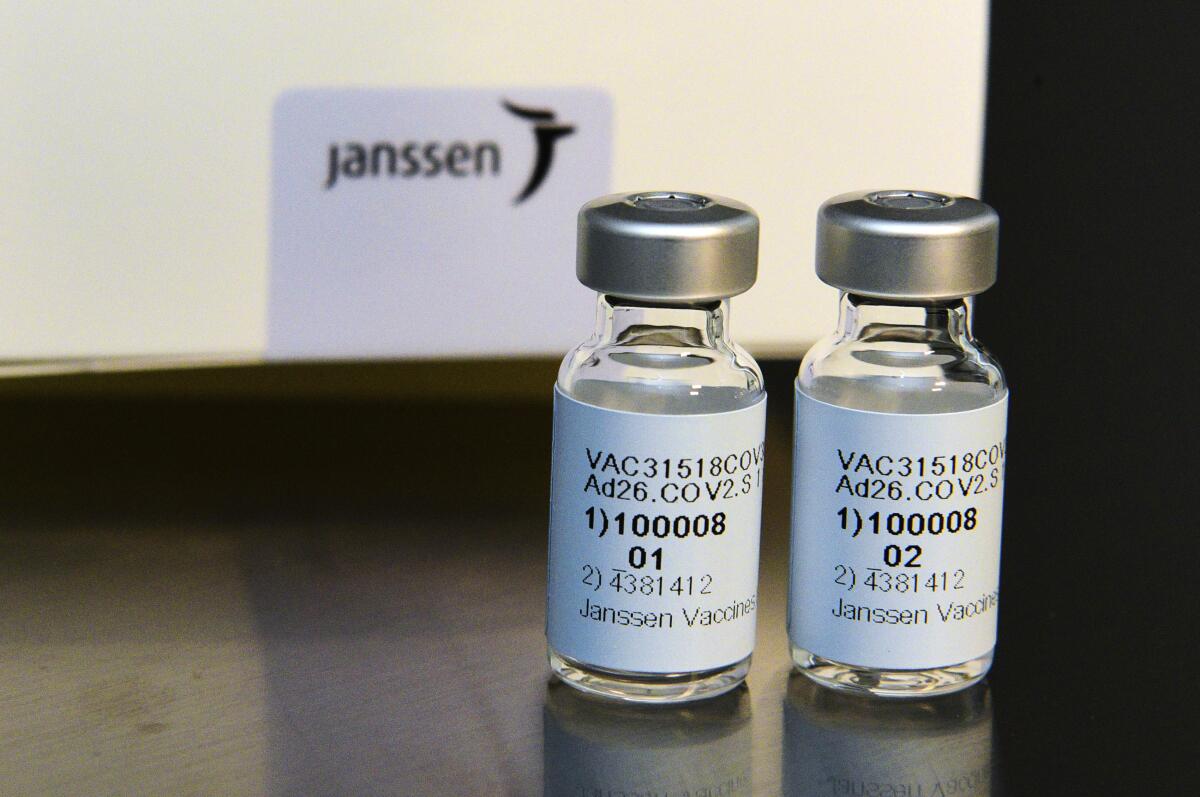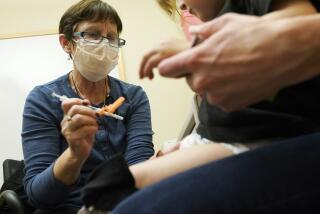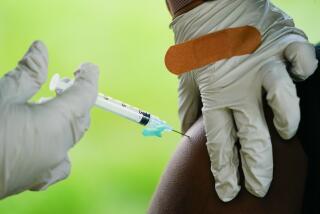Johnson & Johnson asks FDA to authorize its COVID-19 vaccine for emergency use

- Share via
Johnson & Johnson asked U.S. drug regulators to clear its experimental COVID-19 vaccine for emergency use, setting up what is likely to be a fast-moving review process that could lead to millions more doses becoming available to step up a stumbling immunization drive.
The drugmaker said in a statement Thursday that it had filed an application for an emergency-use authorization with the U.S. Food and Drug Administration. If cleared, the shot would give the U.S. a third vaccine to try to halt a pandemic that has killed more than 450,000 Americans. The process is likely to take weeks.
Paul Stoffels, J&J’s chief scientific officer, said that the company would be ready to begin shipping vaccines upon receiving an authorization.
“With our submission to the FDA and our ongoing reviews with other health authorities around the world, we are working with great urgency to make our investigational vaccine available to the public as quickly as possible,” Stoffels said in the statement.
Shares of J&J gained 1.5% in after-hours trading in New York. Over the last 12 months, the stock has advanced 6.85%.
Vaccines from Moderna Inc. and partners Pfizer Inc. and BioNTech have already been given a similar clearance, and remain the only two vaccines available to most Americans.
Both the Moderna and Pfizer-BioNTech vaccines, which were each found to be more than 90% effective in clinical studies, should be given in two doses spaced several weeks apart, according to their authorizations.
J&J’s vaccine was found in the U.S. to be 72% effective in preventing moderate to severe COVID-19 after a single shot, and 66% effective overall in a global trial. It was 100% effective in preventing hospitalization and death.
Officials at the FDA will now review J&J’s trial data. The agency is also expected to convene a committee of outside experts to evaluate the trial findings. The panel would then make a recommendation on whether the shot should be allowed onto the U.S. market. The group’s findings aren’t binding on FDA leadership, but it is unusual for the agency to reject their advice.
More to Read
Sign up for Essential California
The most important California stories and recommendations in your inbox every morning.
You may occasionally receive promotional content from the Los Angeles Times.










